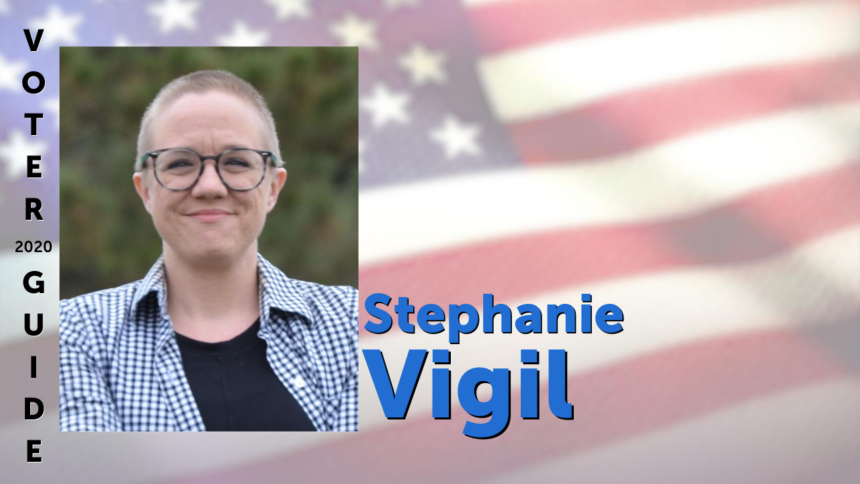KRDO 2020 Voter Guide: Stephanie Vigil

Democrat Stephanie Vigil is challenging for a seat to represent House District 16 in Colorado Springs. Vigil says that as a survivor of childhood trauma, poverty and disability, she wants to bring her perspective to the legislature.
What is your top issue for the next legislative session, and how do you plan to fix it?
Vigil: Our number one priority needs to be springing back from the Covid crisis in a way that provides relief where it's most needed -- namely for essential workers, the renting population, and for our teachers and other school staff. These are some of the hardest working and lowest paid Coloradans, and what's been asked of them through this pandemic has been epic in scale compared to the low wages (and sometimes total lack of benefits) associated with much of their work. If there is no action at a federal level to raise the minimum wage to $15/hour, I'm prepared to go to work on it here in our legislature.
When I speak with educators in my district, low teacher pay is the number one issue, and I intend to support an increase in teacher pay and ensure our public educators are being justly compensated. We all want the best for Colorado's children, and we can't attract or retain great teachers with poor wages.
How can the legislature address the state's housing and cost of living issues?
Vigil: While we made some progress on housing policy last year, renters' rights continue to be weak in Colorado, with privileges heavily skewed in landlords' favor. We can't sustain this kind of financial and housing insecurity for so many Coloradans over the long haul, which is why I will introduce and/or sponsor legislation that gives local governments the right to enact housing policy that makes sense for their own communities, whether it's stabilizing rents or requiring a minimum number of affordable units in new development.
Another remedy for better planning is to re-introduce a bill that died in this year's unusual session, which will take the partisan politics out of county commission districting, and require that a balanced and independent board draw those boundaries, just as voters overwhelmingly decided we wanted for our legislative districts on the 2018 ballot. County commissions wield a significant amount of land use power, as well as federal dollars that can either lift up the entire community, or reward a small number of investors, depending on who controls the board. The people should decide who sits on their board of county commissioners, not the commissioners themselves; and I believe we'll begin to move in the direction the people want when those elections become more fair and equitable.
Should COVID-19 be handled more at a local level or from a top-level approach in the state?
Vigil: Thankfully, this is not entirely an either/or dilemma, and we've demonstrated in Colorado how effective a hybrid approach of statewide and local control can be. There are some things the medical community has been very clear about that are just good public health policy for this moment -- as many people as possible should use a mask when near others; we should employ physical distancing as much as possible; everyone should wash hands frequently; and we should continue to avoid "super spreader" events that involve large numbers of people in close quarters for an extended period of time.
Colorado's approach of placing a high standard of public safety in order to get a variance from the more strict set of standards has been a winning combination. It means we're able to take extreme caution where needed, and allow for less extreme caution where we can afford to, and thereby ensure a high rate of compliance. We're doing better in keeping the spread low than most other states with high population urban centers, and I hope we're all proud that we've been able to largely work together on this cooperatively and effectively. Our best bet at this point is to continue to work with the best available data and adapt as we learn more.
